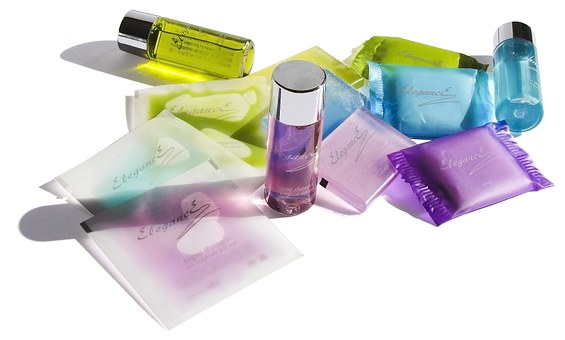
Are 'Natural' Products Really Natural?
Posted by SoundHealth on Friday, December, 12 2008 and filed under Body
Key topics: Organic • Personal Care Products

As people are becoming more aware of the toxins in our personal care products, an increasing number of big companies are jumping on the 'natural' and 'organic' products bandwagon.
But when a product is labeled 'natural' or 'organic' it can have many different meanings that are far from the meanings we associate with them, and a lot of the time the products are not truly from natural or organic ingredients.
Personal care product manufacturers do not claim that their products penetrate the skin. If they did, the products would have to be labeled as "drugs" and would be governed by much stricter regulations. However, it is now recognized that the skin does absorb many of the toxic ingredients in skin care preparations.
So what do the terms natural and organic mean when found on personal care products?
The definition of natural in the Concise Oxford Dictionary is: "existing in, or caused by nature; produced by nature; not artificial; true to nature; uncultivated; wild existing in natural state; not disguised or altered".
This gives a pretty clear picture of what natural should mean. However, vested interests in the big personal products companies can put a whole new slant on this word and use it to suit their own purposes. You will see many so-called natural products with a long list of chemical ingredients, such as 'cocamide DEA derived from coconut oil', or some other natural substance. The consumer is misled into believing these synthetic chemicals must be natural. This is true in some cases where a natural oil or extract is used but is ultimately irrelevant because what you end up with after the chemical solvent extraction and processing is usually anything but natural.
Now let's take a look at the word 'organic'. The dictionary definition is "produced and involving production without the use of pesticides, artificial fertilizers or synthetic chemicals." This is exactly what we would expect from an 'organic' product. However, unscrupulous skincare companies are using the chemistry definition of 'organic' which is also defined in the dictionary as "a compound that contains a carbon atom". This can confuse consumers as carbon is found in every living matter.
To illustrate this point, take Cocamide DEA, a foaming agent found in some shampoos. This ingredient is made by reacting the synthetic chemical and known carcinogen, diethanolamide (DEA) with the fatty acids from coconut oil. The coconut oil is therefore no longer natural, or even what you could call safe!
Also, by this definition the toxic petrochemical preservative called methyl paraben is 'organic' because it was formed from natural leaves that rotted over thousands of years to become crude oil, which was then used to make this toxic and totally un-natural preservative found in 'organic' skin products.
So how can we be sure that we are buying a truly organic product?
The term "Certified Organic" is governed by a number of internationally recognized bodies and is a guarantee of the organic authenticity and integrity of every ingredient in the product.
Also it is a legal requirement that all skin care products, natural or otherwise, must be labeled with the ingredients in descending order of their quantity in the product. This usually means that the top third contains 90-95% of the product. These ingredients can be researched and checked out for their 'natural' authenticity.
So next time you buy a natural or organic product, ask yourself, is it really natural or organic?
Health, fitness and longevity
Based upon the principles of health
in the Qur'an and Prophetic Traditions.
HealthyMuslim.Com
There are two bounties in which
most people lose out: good health
and free time. Al-Bukhari.